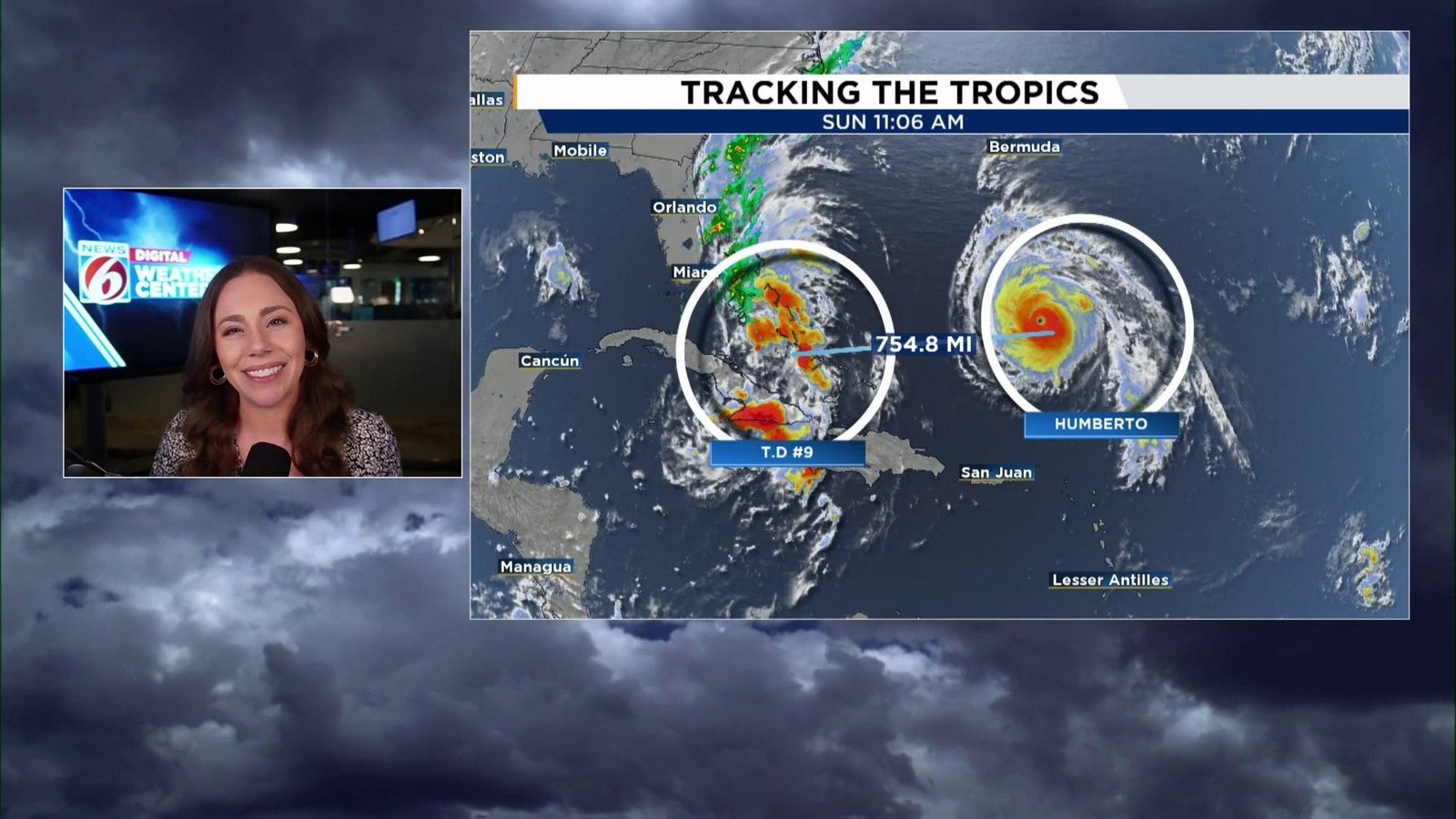Orlando residents know that hurricane season brings uncertainty to Central Florida, even if we aren’t on the coast. With the Atlantic currently brewing two active tropical systems, now is the time to stay informed and prepared. At Daily Orlando News, we’re keeping a close eye on the latest updates and what these systems could mean for our area.
Current Status: Two Tropical Systems on the Radar
As of this week, meteorologists are closely monitoring two separate tropical systems in the Atlantic basin. Both have shown signs of organization, prompting the National Hurricane Center (NHC) to issue regular updates and advisories. While neither has been officially named as a hurricane yet, their development could spell changes for weather patterns across Florida, including Orlando.
The first system is located in the central Atlantic, moving westward and expected to approach the eastern Caribbean in the coming days. The second system is closer to the coast of Africa, also tracking westward with potential for further strengthening. These systems are typical for this time of year, as peak hurricane season arrives in August and September.
Potential Paths and Orlando’s Risk Assessment
For Orlando, the main concern with any tropical system is the potential for heavy rainfall, strong winds, and tornado threats—even if the system doesn’t make a direct landfall in Central Florida. Early computer models suggest that the first system could enter the Caribbean and possibly curve toward the Bahamas or Florida peninsula. However, it’s still too early to predict exact paths, and much can change in a matter of days.
The second system is further out, but forecasters say it bears watching as it could follow a similar trajectory. Orlando’s inland location often shields us from the worst of hurricane-strength winds, but we are no strangers to flooding, downed trees, and power outages from even tropical storms.
Residents should remember that the “cone of uncertainty” expands the farther out we look in the forecast, which means everyone in Central Florida should stay prepared as we await new advisories.
Preparedness Tips for Orlando Residents
Whether you’re a longtime local or new to the area, hurricane preparedness is a must. Here are key tips tailored for those living in and around Orlando:
- Stay Informed: Sign up for local alerts and follow trusted sources like the National Hurricane Center and Orange County’s emergency management updates.
- Emergency Kit: Ensure your kit is stocked with water, non-perishable food, flashlights, batteries, medications, and important documents.
- Home Preparation: Check your yard for loose branches, secure outdoor furniture, and clean gutters to reduce flood risk.
- Evacuation Plans: Know your evacuation zone and routes, even though most Orlando residents will shelter in place. If you have pets, include them in your plan.
- Charge Devices: Keep cell phones and backup batteries fully charged in case of power outages.
Preparedness goes a long way toward minimizing stress and damage if a storm does head our way.
Impacts Beyond the Coast: Why Orlando Still Needs to Watch Closely
Some newcomers to Orlando may assume that being inland means less risk during hurricane season. While we’re less likely to see storm surge, Central Florida frequently experiences severe weather from tropical systems. Rain bands can stretch far from a storm’s center, leading to flash flooding and tornadoes even hundreds of miles from landfall.
For example, during Hurricane Irma in 2017, Orlando experienced widespread power outages, toppled trees, and significant flooding despite not being on the coast. Schools and businesses may close, and travel could be disrupted even if the brunt of the storm hits elsewhere. That’s why ongoing awareness is so important for our community.
What Meteorologists Are Watching This Week
As these two tropical systems continue to move west, meteorologists in Orlando and across Florida are monitoring several key factors:
- Sea surface temperatures, which fuel storm intensification
- Wind shear, which can weaken or disrupt storm formation
- Projected steering currents that influence storm direction
- Interaction with land or other weather systems
Forecast tracks and intensity predictions are updated frequently, so it’s critical to check for the latest information daily. At Daily Orlando News, we’ll keep you posted on every significant development throughout the week.
Conclusion: Keep Calm, Stay Prepared, and Stay Tuned
As we monitor these two tropical systems in the Atlantic, the best thing Orlando residents can do is stay aware and ready. Hurricane season is always unpredictable, but preparation and up-to-date information are our best defenses. Have you experienced a major storm in Orlando? How do you prepare for hurricane season? Share your tips and stories in the comments below—let’s help keep our community safe and informed together!
















